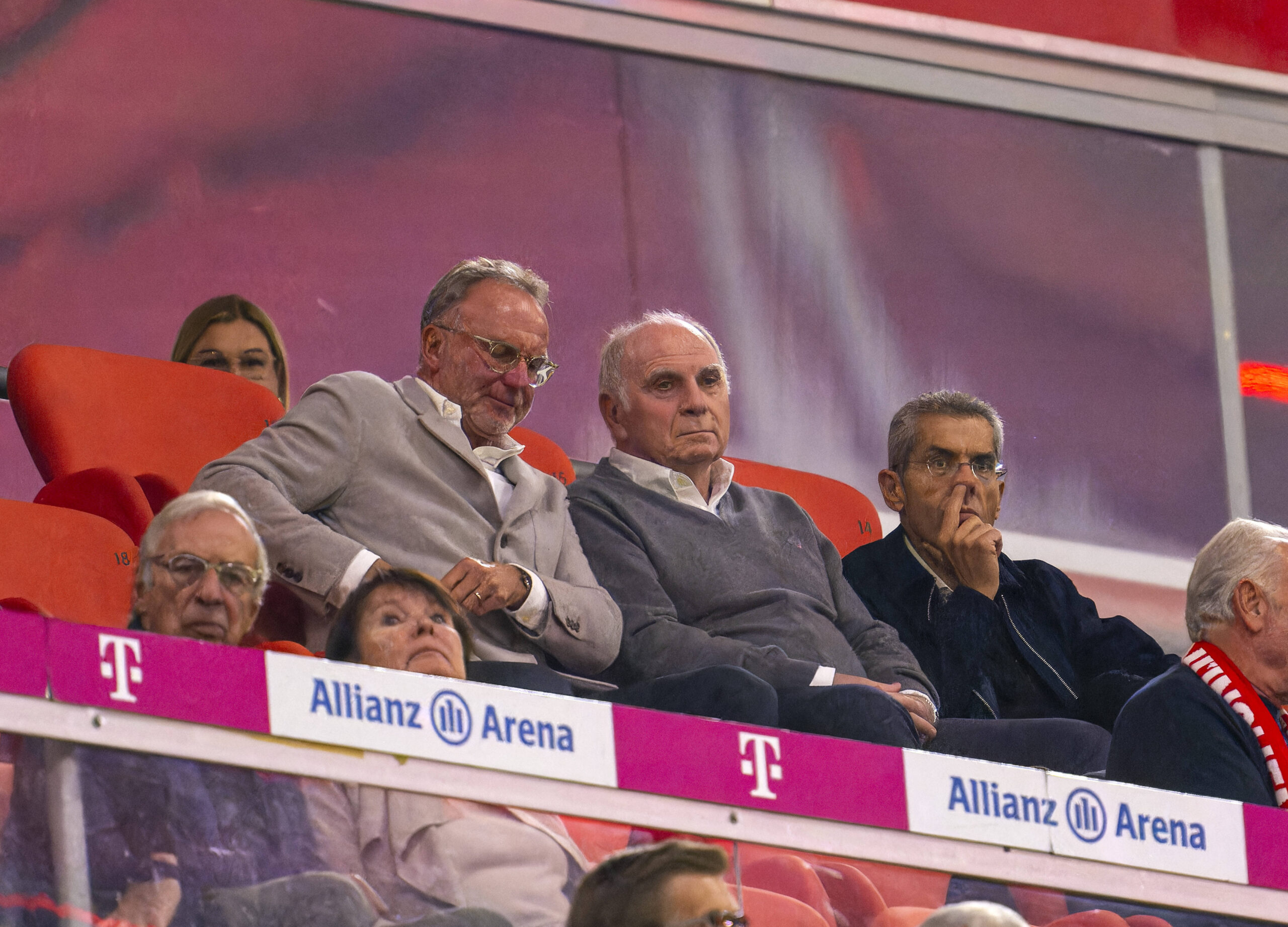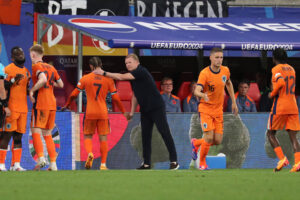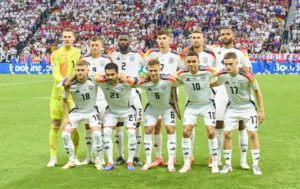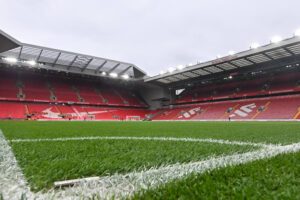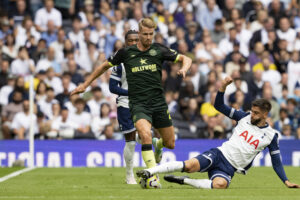Bayern Munich are a football club with an incredible international reach, with which few other sides in the global game can compare. They are in fact a brand of their own. In the modern area of the Bavarian super club’s history, they mainly owe their stature and glory to the tireless work of two men on the board: Uli Hoeneß and Karl-Heinz Rummenigge.
Both of them are former players from the era of the mid-1970s when the team won the European Cup (forerunner tournament to today’s UEFA Champions League) three times in a row between 1974 and 1976. Both have shaped the club for several decades in a number of various roles. The problem, however, is that the duo have done so to such an extreme extent, that there is no one big enough to fill their shoes. With Hoeneß currently at age 71 and Rummenigge at 68, that is a huge problem for the Bavarians, which has reverberating consequences for the first-team squad.
[metabet_core_side_odds_tile query=”sog/bayern_münchen” size=”350×350″ style=”fraction” site_id=”sportseventsguide”]
The Duo
Watch: The Bundesliga has a new top striker and it’s not Harry Kane
Uli Hoeneß
Hoeneß joined the club from SSV Ulm on a free transfer in 1970. He ended his professional playing career in 1979, due to a severe knee injury that had plagued him for years. He joined the Bayern Munich board as commercial manager ahead of the following season. With the club’s corporate restructuring of the early 2000s, the names of Hoeneß’s official roles changed to Vice Chairman and Sporting CEO, but he was one of the main leaders of the German record champions throughout those decades.
In late 2009, he was first elected president of the team, and later also Chairman of the supervisory board. After a court found him guilty of tax fraud, Hoeneß voluntarily resigned from those positions in March 2014 and went to prison, without having appealed the court’s decision, against the advice of his lawyers. Upon his release, he led Bayern’s club academy from early 2015 for just over a year. Toward the end of 2016, the vast majority of voting club members present at that annual meeting elected him club president for yet another three-year term.
He soon became the leader of the supervisory board again too. Upon the end of that final presidential term, the side named him Honourary President and he remains a member of the advisory board to this day as well.
Karl-Heinz Rummenigge
Rummenigge played for the team from 1974 to 1984. He then moved on to Inter, for a minuscule transfer fee by today’s standards, which nonetheless reportedly wiped out the club’s debts at the time. After having finished his playing career in 1991, he joined the Bayern Munich board late that year, serving as Vice President. The above-mentioned corporate restructuring of the team then made him CEO. This is the position he held until former goalkeeping great Oliver Kahn replaced him in July 2021.
As we noted ahead of Bayern’s first Bundesliga game of the season, Kahn and then-sporting director Hasan Salihamidžić decided to sack coach Julian Nagelsmann and replace him with current boss Thomas Tuchel during the spring international break of 2023. They did so without consulting President Herbert Hainer or his supervisory board. This caused such damage to morale in the first-team locker room that they promptly got eliminated from the quarterfinals of both the German Cup and later the last eight of the Champions League as well.
Even after the team bounced back to barely defend their Bundesliga crown, the supervisory board decided to terminate the contracts of both Kahn and Salihamidžić. They installed long-time Bayern Munich board member Jan-Christian Dreesen as CEO, while later filling the sporting director’s post with former Red Bull Salzburg man Christoph Freund. These decisions helped persuade Rummenigge to come out of retirement and join the supervisory board of the club.
The Problem
As we said from the start, with both Hoeneß and Rummenigge quickly advancing in age, there is an extreme lack of other authority within the organisation. As for the new sporting director, he only arrived at the club on September 1. This was practically at the time when the transfer window was closing. Furthermore, Freund has already made a blunder or two when speaking to the media. This only undermines his public credibility. There is a serious question as to who is in charge of squad planning and transfers within the Bayern Munich board.
Read More: Bayern Munich Predicted Lineup vs. SC Freiburg for October 8
Tuchel often takes the media’s bait by criticising the lack of depth in the squad. The summer sale of Benjamin Pavard along with the previously-decided loaning out of Josip Stanišić left the team incredibly weak in the right-back position in particular.
All in all, Hoeneß and Rummenigge have a monumental legacy to protect. But that legacy is in grave danger, as long as they fail to let go of the team. They must of course first find adequate replacements either from within the Bayern Munich board, or bring them in from the outside. Either way, time is running out.


